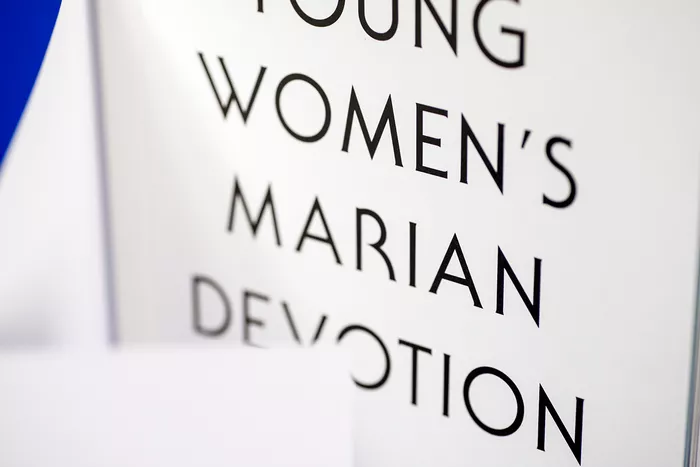Devotion to Mary, the mother of Jesus, holds a significant place in the hearts of millions of Christians around the world. Often characterized by prayers, hymns, and acts of veneration, devotion to Mary transcends mere admiration; it represents a deep spiritual connection rooted in faith and tradition. This article aims to explore the essence of devotion to Mary, its historical significance, theological foundations, and its enduring relevance in contemporary Christian life.
Historical Roots of Marian Devotion
The origins of devotion to Mary can be traced back to the early Christian communities. While the New Testament provides limited information about Mary’s life beyond her role as the mother of Jesus, early Christians revered her as a symbol of purity, humility, and maternal love. The veneration of Mary gained momentum in the early centuries of Christianity, influenced by various theological developments and cultural practices.
One pivotal event in the development of Marian devotion was the Council of Ephesus in 431 AD, which affirmed the title of Mary as Theotokos, meaning “God-bearer” or “Mother of God.” This declaration solidified Mary’s central role in Christian theology and emphasized her connection to the divine mystery of the Incarnation. From this point onward, devotion to Mary continued to flourish, incorporating elements from both Eastern and Western Christian traditions.
Theological Foundations of Marian Devotion
Marian devotion is deeply rooted in key theological concepts such as the Incarnation, redemption, and the communion of saints. Central to this devotion is the belief in Mary’s unique role in salvation history as the mother of Jesus Christ, who is regarded as the Savior of humanity.
One theological aspect of Marian devotion is Mary’s participation in the redemptive work of Christ. While Jesus is understood as the primary mediator between God and humanity, Mary is seen as cooperating in this salvific mission through her obedience, faithfulness, and willingness to bear the Son of God. This theological understanding underpins prayers such as the Hail Mary, which acknowledges Mary’s role as an intercessor and asks for her prayers on behalf of believers.
Furthermore, Marian devotion reflects the broader Christian belief in the communion of saints, which encompasses the spiritual bond between the faithful on earth and the saints in heaven. Mary, as the greatest of the saints, occupies a special place in this communion, serving as a model of faith and a source of inspiration for believers seeking guidance and intercession.
Forms of Marian Devotion
Marian devotion manifests in various forms across different Christian denominations and cultures. One of the most common expressions of this devotion is the recitation of prayers dedicated to Mary, such as the Hail Mary, the Memorare, and the Rosary. These prayers serve not only as acts of worship but also as a means of seeking Mary’s intercession for various needs and intentions.
In addition to prayers, Marian devotion often involves the celebration of feast days and devotional practices associated with Mary. Feast days honoring Mary, such as the Solemnity of the Assumption and the Feast of the Immaculate Conception, are marked by special liturgies, processions, and devotional services. Devotional practices like the wearing of scapulars, the lighting of candles, and the consecration to Mary are also common among devout Catholics and Orthodox Christians.
Art and music have also played a significant role in fostering Marian devotion throughout history. Countless works of art depicting Mary, ranging from medieval icons to Renaissance paintings, serve as visual reminders of her importance in Christian spirituality. Similarly, hymns and chants dedicated to Mary, such as the Ave Maria and the Salve Regina, continue to resonate with believers, evoking sentiments of reverence and devotion.
Controversies and Criticisms
Despite its widespread acceptance among many Christians, Marian devotion has not been without controversy and criticism. Some critics argue that devotion to Mary detracts from the worship of God alone and may border on idolatry if not properly understood. Others raise concerns about certain devotional practices, such as the cult of Marian apparitions, which some view as superstitious or lacking sufficient theological grounding.
In response to these criticisms, proponents of Marian devotion emphasize its scriptural basis and its alignment with core Christian beliefs. They assert that honoring Mary does not detract from the worship of God but rather enhances it by recognizing the unique role that Mary played in the plan of salvation. Moreover, they argue that Marian devotion fosters a deeper appreciation for the humanity of Jesus and serves as a source of comfort and spiritual nourishment for countless believers.
Conclusion
In conclusion, devotion to Mary occupies a central place in Christian spirituality, reflecting a profound reverence for the mother of Jesus and a deep-seated belief in her intercessory role. Rooted in history, theology, and tradition, Marian devotion encompasses a rich tapestry of prayers, rituals, and devotional practices that continue to inspire and uplift believers across the globe.
While controversies and criticisms may arise, the enduring appeal of Marian devotion lies in its ability to foster a deeper relationship with God through Mary’s example of faith, humility, and love. Whether through the recitation of prayers, the celebration of feast days, or the contemplation of sacred art, devotion to Mary remains a cherished expression of Christian faith, drawing believers closer to the mystery of God’s saving love revealed in Christ.

